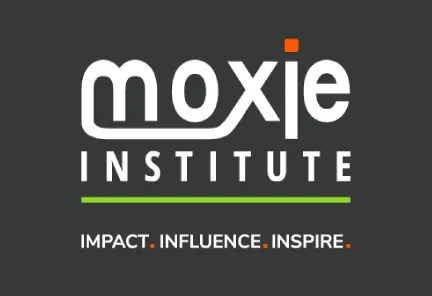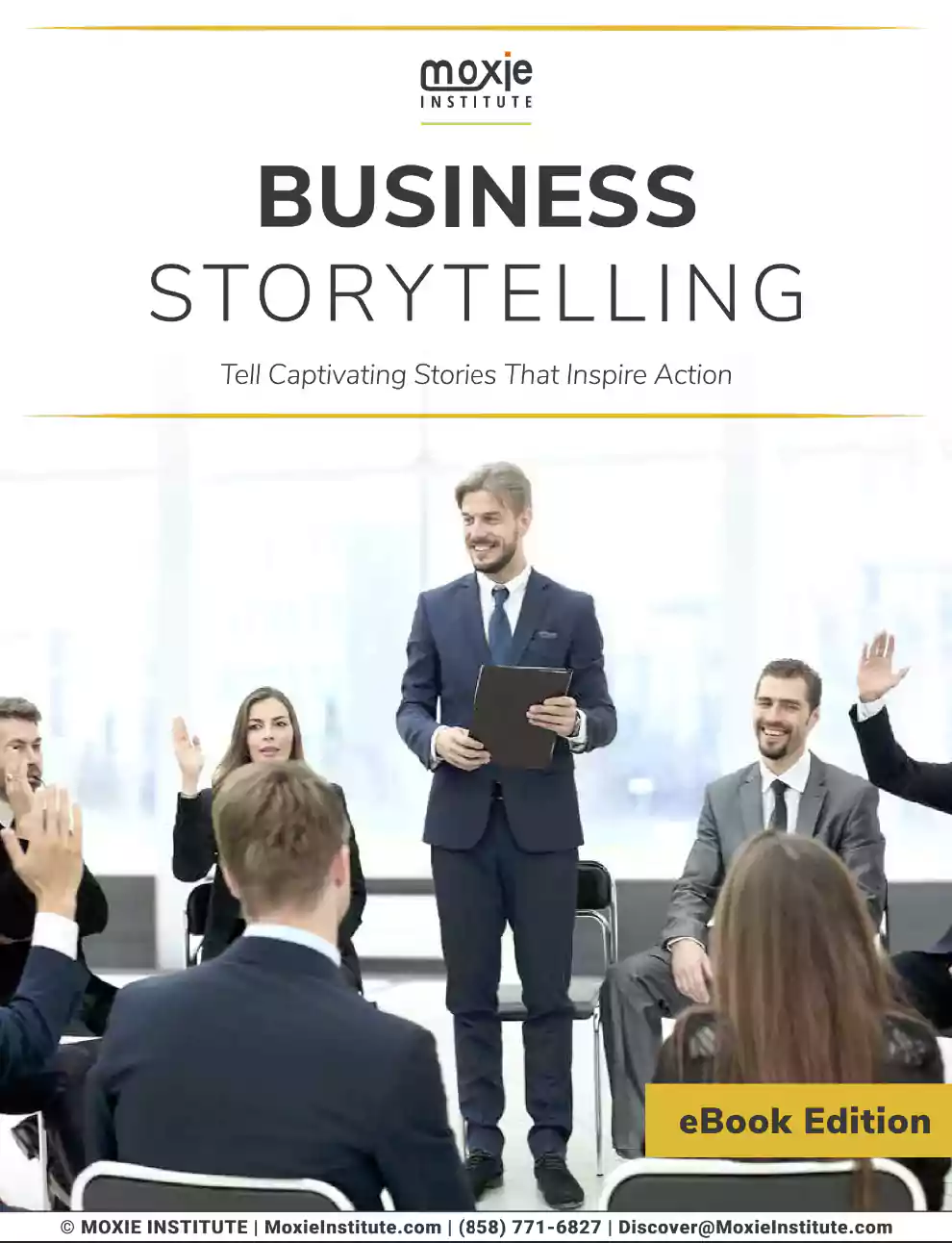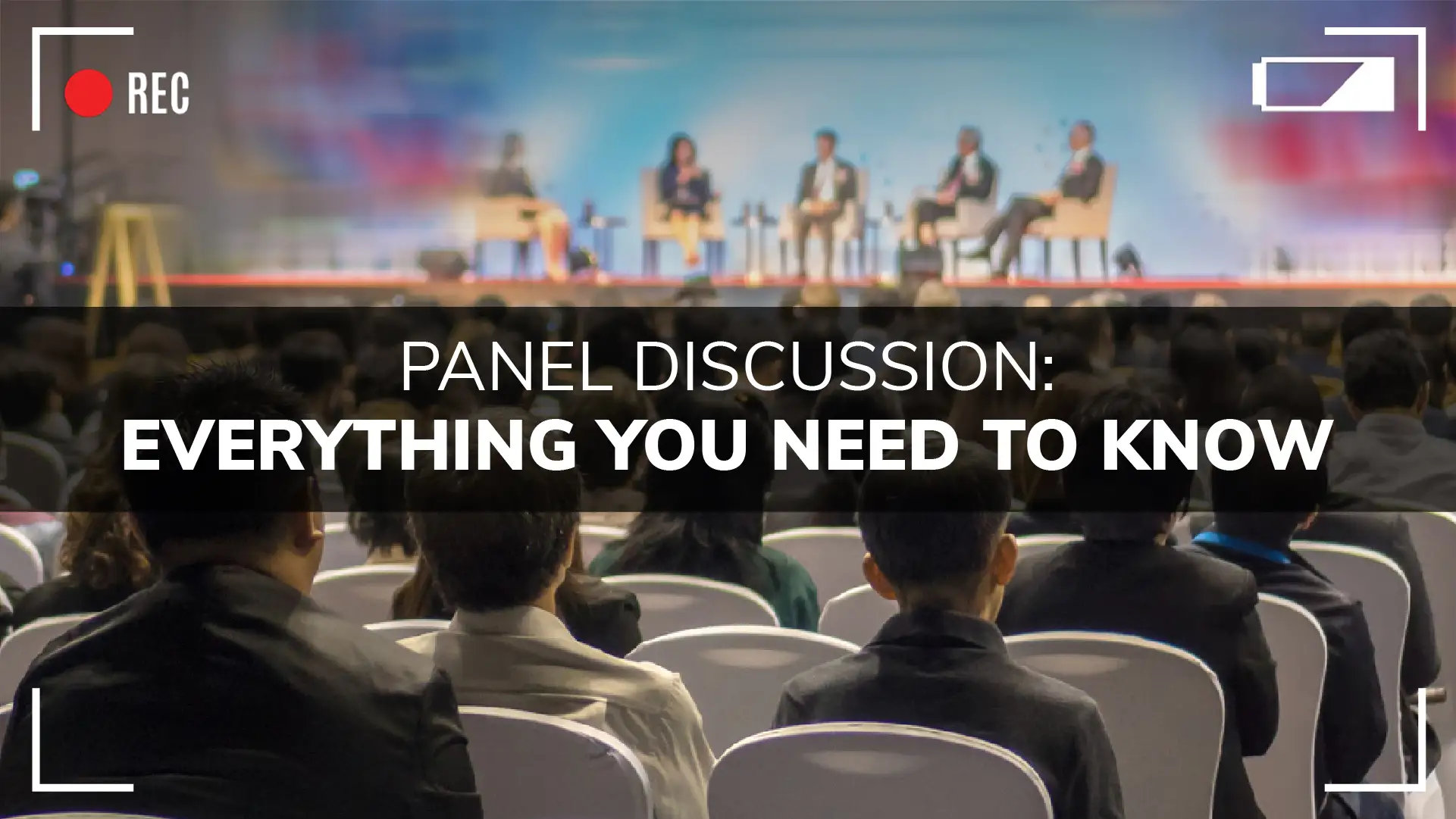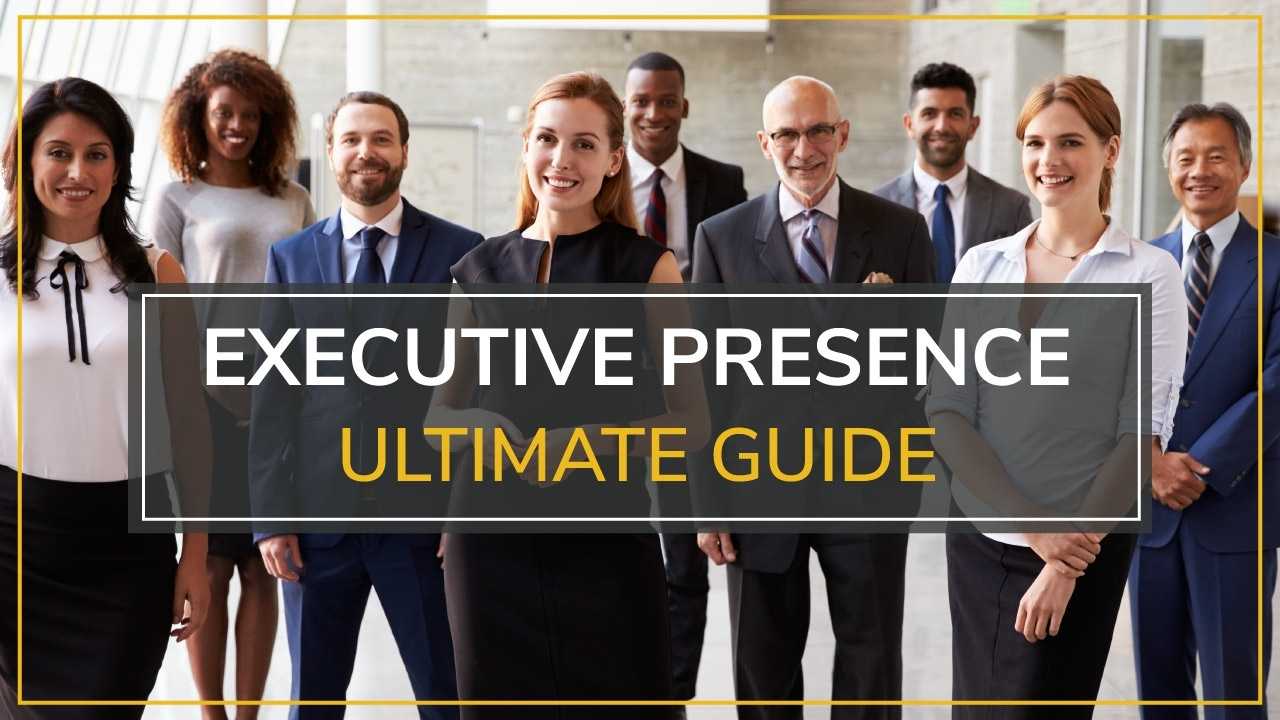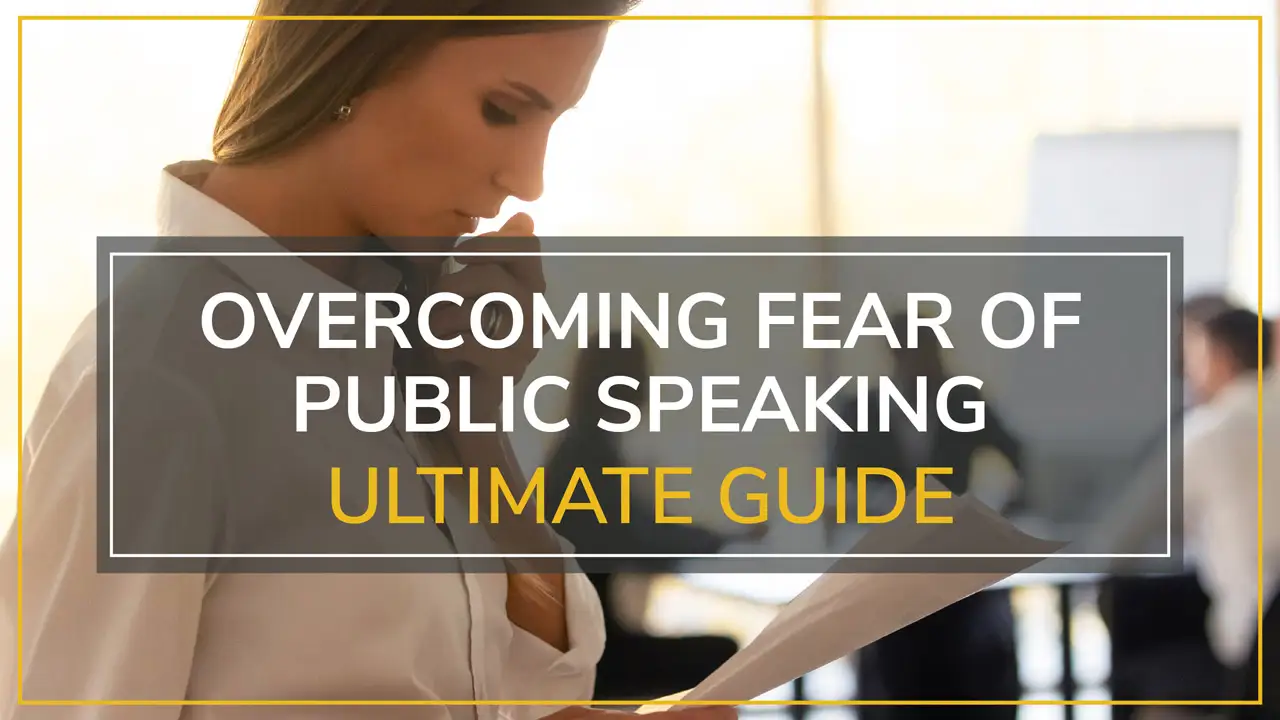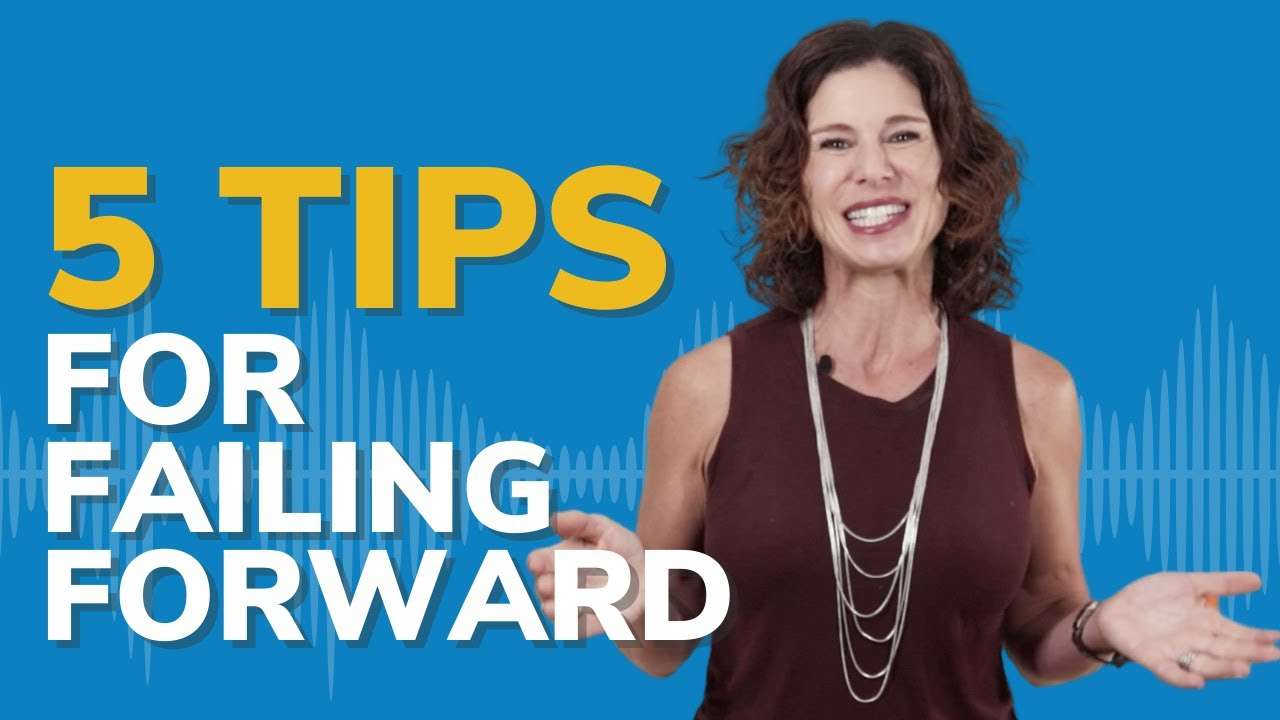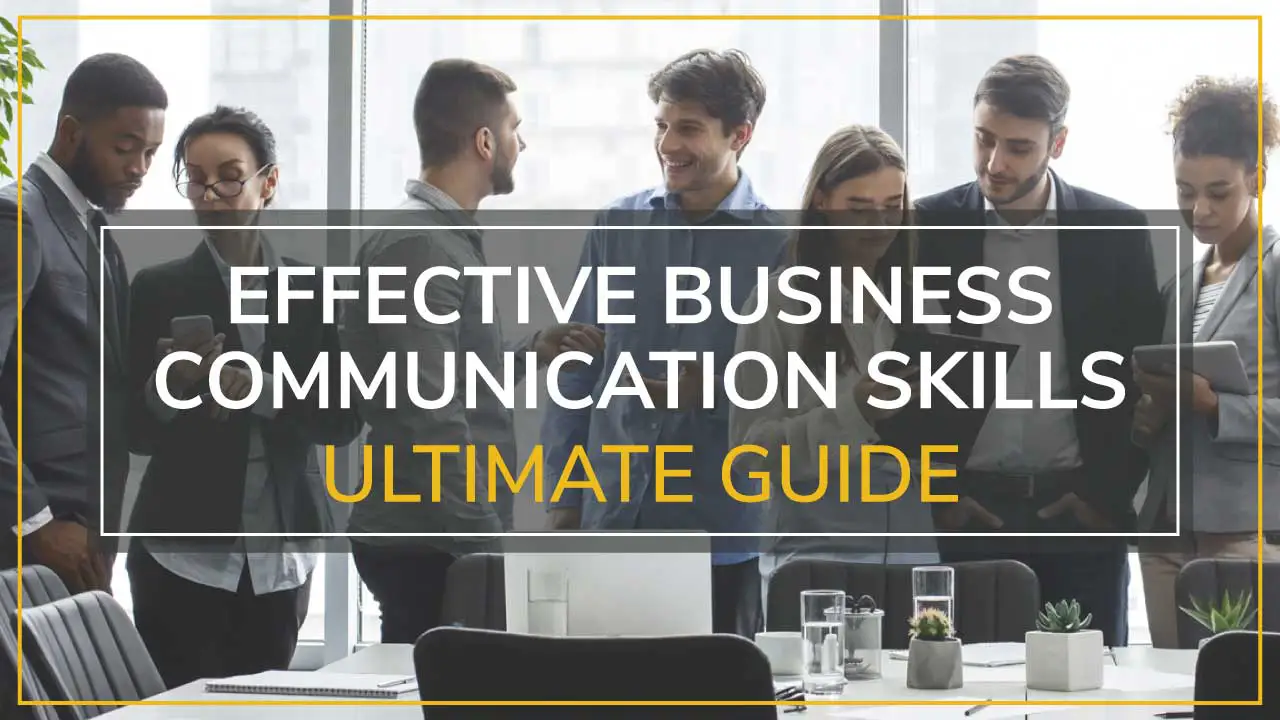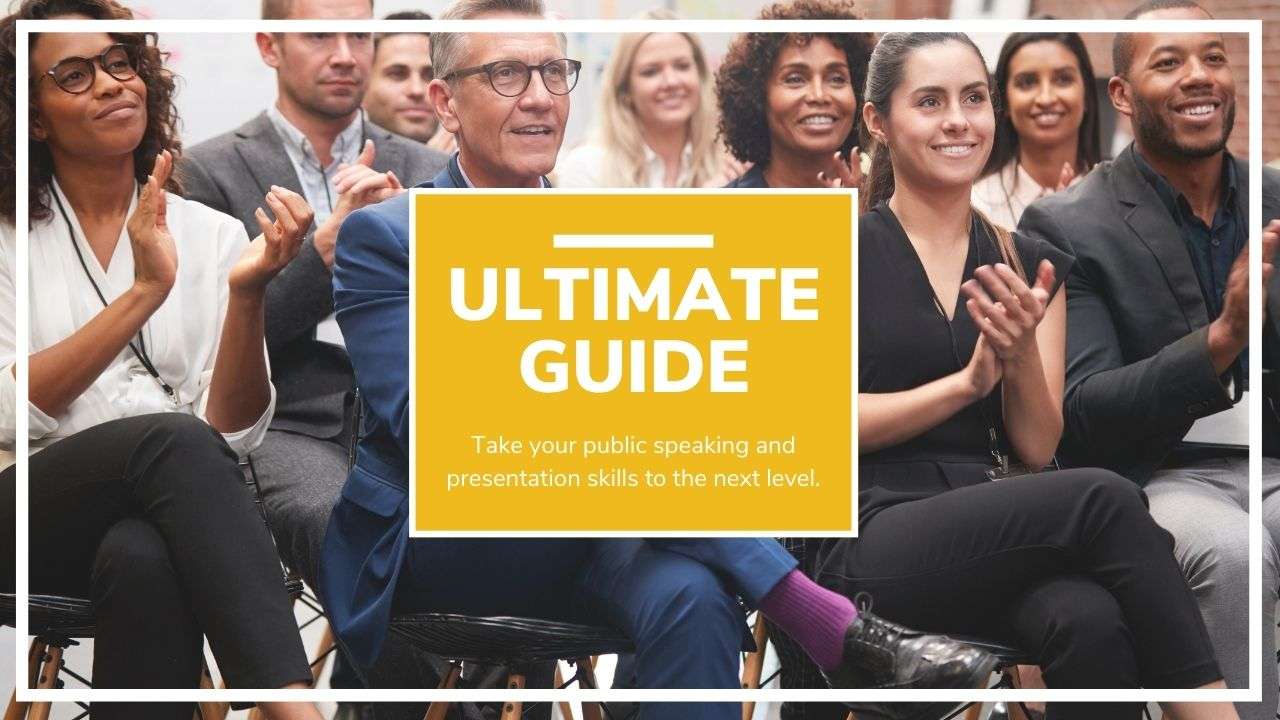A panel discussion has much in common with improvised Jazz.
The performers show up with a common understanding of what they’re doing, but what happens onstage is unrehearsed, spontaneous, and revelatory. It’s a display of expertise from different backgrounds that allows the audience to hear something unique.
The outcome is art.
If you’ve been invited to be a panelist or even moderate a panel discussion yourself, we cover everything you need to know to have an exciting, collaborative experience.
Table of Contents
ToggleWhat Is A Panel Discussion?
A panel discussion calls for a group of professionals or experts to take the stage together and engage in conversation with each other and in some cases, the audience.
It approximates an acceptable form of eavesdropping on a meeting that would otherwise be invisible. What would you hear if these experts were together bouncing ideas off of each other in the boardroom? A panel discussion gives us a taste of that.
Also like improvised Jazz, there aren’t any boilerplate GOOD ways of doing a panel discussion. But there are definitely best practices that make the experience more enjoyable for everyone.
So fine tune your attention, and get ready to learn how to prepare for a panel discussion and give a stellar performance on stage!
So You’ve Been Selected as a Panelist
That’s great! No, really. You have a chance to do something that could:
- Build your company brand
- Cement yourself as an authority figure in the industry
- Give the audience valuable insights to walk away with
Now which of those three things do you think is the most important?
It’s the third.
Without it, the first two things don’t happen.
If the audience isn’t engaged or informed, they aren’t going to invest another second of mental stock in your brand and they won’t remember you as an expert in your field.
It really is all about the audience or it won’t be about anything at all.
Why do people show up to listen to improvised Jazz? To watch the musicians tune their instruments and play familiar pop songs? No, they show up to have their gray matter tickled, their appreciation for music expanded, and to see what happens when a bunch of artists take a chance on each other.
That’s what makes them create a special place for the musicians in their hearts—and memories. If you contribute to a panel discussion that excites the audience’s brains in the same way, then they won’t forget you anytime soon.
Preparing For a Successful Panel Discussion
Surprise! You don’t just show up to a panel discussion like it’s another unstructured and off-the-cuff meeting! There is some actual homework! Doing everything you can to prepare before the day itself will make a huge difference.
Do thorough research, hire a media coach, plan your messaging – anything that will give you an edge and help you stand out.
Get To Know Your Moderator
Your first priority is doing a meet-and-greet with the moderator. They’ll be determining the key you play in as a group, so the sooner you get in touch with them, the better. We cover being a moderator in more detail below.
You’ll find out what the aim of the discussion is in the first place. You’ll also get a broad overview of the kind of people you’ll be sharing the stage with.
A responsible moderator will also fill you in on the nature of your audience, which will help shape your next actions.
Get To Know Your Fellow Panelists
To the extent you can, get to know the other panelists. Talk to each of them at least briefly. You might have to settle for finding them on LinkedIn and reading their bio. But the more personal contact, the better. Here’s why.
You won’t be an expert on everything thrown at you. If you have a general picture of the other panelists’ expertise, you’ll know who to pass the ball to before you’re reduced to “Um, um, um.” That way the audience isn’t let down, the discussion keeps rolling, and you dodge unnecessary pressure.
You’re also looking to prevent provoking negative interactions. For example, if a fellow panelist doesn’t like bringing climate change into the discussion about the future of business, the best time to find out is over chat, not after you ask them to share their opinion while sharing the stage in front of hundreds of strangers.
Preparing to Contribute
It’s impossible to prepare for every sort of question or every nuance of discussion. But you can prepare a few small things to present when it’s your turn to speak.
As a panelist, you will want to:
- Stay on point
- Observe the time you’ve been allotted
- Present a coherent message
- Dodge or defer gracefully
- Handle interruptions in a dignified manner
Each of these calls for a measure of preparation. It won’t be as labor-intensive as preparing for a solo speech. But you will need to have a few things ready. How comfortable are you in front of a camera? It’s one thing when it’s just you and the crowd. Nerves can escalate when there’s an unknown number of people watching from behind a camera lens.
There are methods of getting comfortable with this setup, including personalized training. But it’s also possible to prep on your own, your personal needs pending.
A Basic Message
Your moderator may or may not brief you on specific questions that will be directed at you. The next best thing you can do is prepare some general, coherent information. Just pretend that you’re going to explain a few things to an individual in the simplest terms:
- Your immediate job
- Your industry
- The requirements of breaking into your field
- Trends in your field
- What you know about the overarching theme of the panel discussion
- Relevant data, facts, figures
Don’t faint… you don’t have to be ready to give a speech on every single item. But just be geared to break them down in clear, concise terms.
Think of it as a verbal resume. Instead of getting hired, you’re trying to be understood.
Unprepared panelists tend to shrink away from saying anything or they will ramble with no direction. Any seasoned media coach will tell you that the audience will be able to tell who came ready and who didn’t—and to come unprepared is to tell the audience that they don’t matter.
A Few Stories
Remember, learning is relating. Stories are the fastest track to help your audience learn new ideas. They’re packed with symbols easy to relate to what they already know. They’re also the easiest way to hold people’s interest. Therefore it won’t be a waste of time to prepare a few stories related to your knowledge—either stories that you experienced firsthand or anecdotes taken from relevant publications or forum discussions.
Emphasis on relevant. This isn’t the space for “Gee, a funny thing happened to me the other day…”
Some Graceful Saves
What if you’re faced with a question you can’t answer? Or a question you don’t feel comfortable answering? Or a question that is clearly meant to be provocative?
There are ways to douse these fuses once they’ve been lit.
If you’re called upon to answer a question you don’t know the answer to, just admit it. It’s as simple as saying “I don’t know, but I believe (Fellow Panelist) knows more about that than I do…” and hand the question over. No face is lost. Your modesty will be remembered in a good way.
Then there are the questions where you lose, no matter what you say… the ones that are fielded by bored fifteen-year-olds hiding in the bodies of professionals.
It’s still easy:
- “What I’d really like to talk about is…”
- “It’s important to remember that…”
- “I think a better question would be…”
And then guide the discussion safely out of the blast radius.
Don’t Check Out!
You shared your points, you used up your time, now the rest of the program rests squarely on the shoulders of the other panelists, right? Time to sit back and drift off.
No.
If the audience sees you checking out, they’ll follow suit. Your fellow panelists will either feel slighted or wonder if they’re doing a lousy job.
Sit up straight. Look at who’s speaking. Nod at points that strike you. Basically, set the example for the audience. This will support whoever’s speaking and the audience will be less inclined to disengage if they see that you’re engaged.
Bonus: If You Are Leading A Panel Discussion
Congratulations! As moderator, you’ve been saddled with a remarkably interesting job! But so have Hollywood cameramen and lighting technicians, and you have something in common with all them: You play a big role in the show, but you’re not the star.
Read it again.
The audience didn’t come to listen to you and your vast wisdom about everything (and neither did your panelists). This bonus section is about how to prepare for a panel discussion as a moderator.
Your Role as Moderator
As we mentioned about moderators above, You are the rudder. It’s a small part of the ship, but it determines the direction everything goes.
You are both moderator and instigator. You start controlled fires here and put wildfires out over there. That is, you ask the questions and raise the ideas that will stoke meaningful, energetic discussion. But if you’ve got someone who won’t stop talking that went over their allotted time three days ago, you’ll have to gracefully shut them down and open the floor for other panelists.
There are ways to avoid such issues from the very beginning.
Selecting Your Panelists
Suppose you were hosting a banquet instead of a panel discussion and you’re looking for expert chefs.
You really want to “wow” the guests. So what criteria will you use to pick your chefs? Their ability to cook? Or their clout in their establishments? Oh, he’s the restaurant manager’s son? Get him in the kitchen, I bet his reputation will taste amazing.
Obviously, rank and politics don’t add any flavor to a meal.
So in the same way, when you’re picking your panelists, go with the ones that you know will be able to contribute meaningfully to the discussion. If there are recordings of past panel discussions with someone you’ve got your eye on, watch them. See what you’re getting.
You want panelists that are as knowledgeable and as personable as possible.
Once you’ve picked your dream team, don’t leave them hanging. Tell them the kind of crowd they’ll be speaking to. Tell them who they’ll be speaking with. Get phone numbers, LinkedIn profiles, anything that will allow them to get in touch with each other and get on the same page. Basically, everything we covered above. The more work you can save your panelists, the more they’ll appreciate you and the better informed they will be on the day.
If you have questions for them in advance, let them know.If you’re opening the discussion up to some Q and A with the audience, especially let them know.
Speaking of Q and A
Live Q and A between the audience and your panelists can be incredible and memorable. It can also be a minefield. It depends on the intent of the questioner and the dexterity of the panelist.
Having questions crowdsourced in the months leading up to the event can be a safeguard, allowing you to vet queries before everyone is center-stage.
It would be prudent for you to come up with some questions on your own just in case the audience doesn’t have much to say. This will keep the Q and A segment from becoming a staring contest.
The Bigger Picture
It comes down to three basic elements in order to keep the ship of the panel discussion afloat: Intent, Empathy, and Focus.
Intent
- Why are we having this panel discussion anyway? Answering that question early on will keep you from allowing deep delves down aimless rabbit holes. You’ll want to answer that question from the perspectives of everyone involved: The panelists, the audience, and the organizers.
- Think about w the audience should gain from this panel
- Why are the panelists interested in participating? It could be:
- Educating others in what they know
- Growing their reputation in their field
- Growing their brand
- Understand the core objective of the organizers such as
- Promoting a product or service
- Spreading awareness about something
Empathy
You have a double duty to perform: directing the discussion in such a way that the panelists and the audience get what they came for. This will call for maintaining your empathy for both.
- Empathy for the audience
- When a panelist dominates the whole affair, you will have to politely open the way for the other panelists to have a say.
- When a panelist is clearly going way too deep for the audience, have them reframe things more simply with guiding questions. “How would you summarize that for a conversation on the subway?”
- When the discussion gets off-topic or is no longer meeting the aims outlined in Intent, you will kindly shepherd the program back in the right direction.
- When a panelist could share more valuable information but doesn’t, you will coax them with statements like “Could you explain more about XYZ,” or “Would you elaborate a bit?”
- Empathy for the panelists
- You’re going to have some people in the discussion that are nervous. They might ramble uncontrollably and be unable to wrap up. They might not know what to say altogether. If you can tell they’re splashing, gracefully steer things over to another panelist. “Well said, very interesting. Let’s see if (Other Panelist) would like to chime in on that.”
Focus
We struggle to remember what we had for breakfast 3 days ago. So there will only be a few points that survive in the memories of your audience, regardless of how well presented the discussion is. Here’s how to keep everything on track:
- Well before the panel event takes place, prepare to do justice to 2 or 3 key points and discuss them in sequence. This is superior to discussing 10 or 20 points in a quick, sloppy fashion.
- Throw your panelists a bone by outlining the topics in your introductory remarks to the discussion. This will help anyone that might have forgotten their notes.
- Throw your audience a bone and summarize the key points at the end of the discussion. “Thank you everyone for that lively discussion of X, Y, and Z.”
Enjoy The Lively Discussion!
Whether you’re a panelist or the moderator, each of you has a chance to share what you know, grow your brand and your reputation, and give the audience a memorable experience. All it takes is a little preparation.
If you found value in this information, you can have more Moxie methodology tailored to you personally. Just get in touch with one of our media coaches. That way you’re trained to develop skills that aren’t one-size-fits-all, but that fit you and nobody else.
And of course, keep an eye on our blog for more media training tips!
TAKE THE FIRST STEP TO MASTER POWERFUL NEW SKILLS
Schedule an easy 30-minute call using our using our calendar. We’re here to help!
